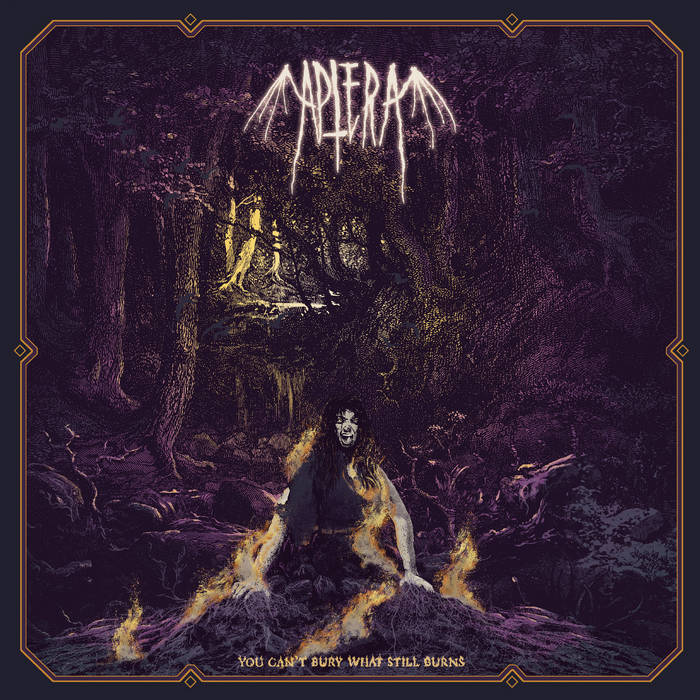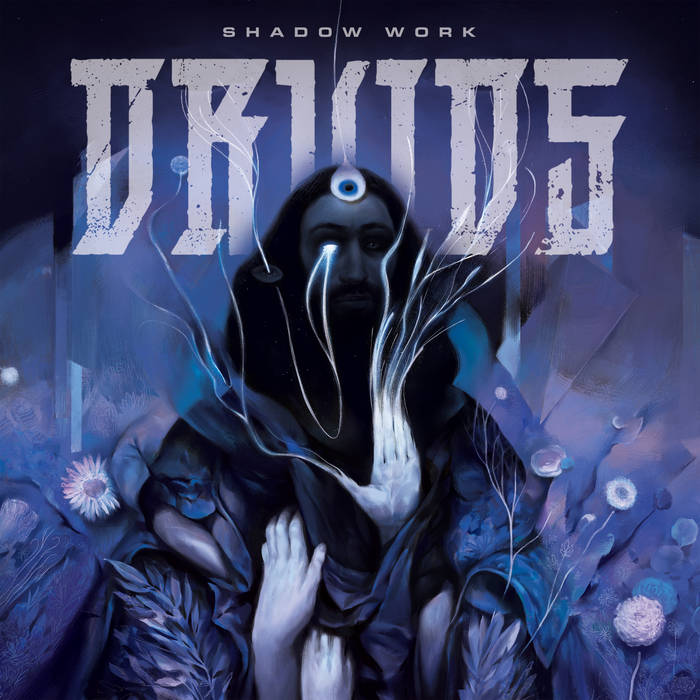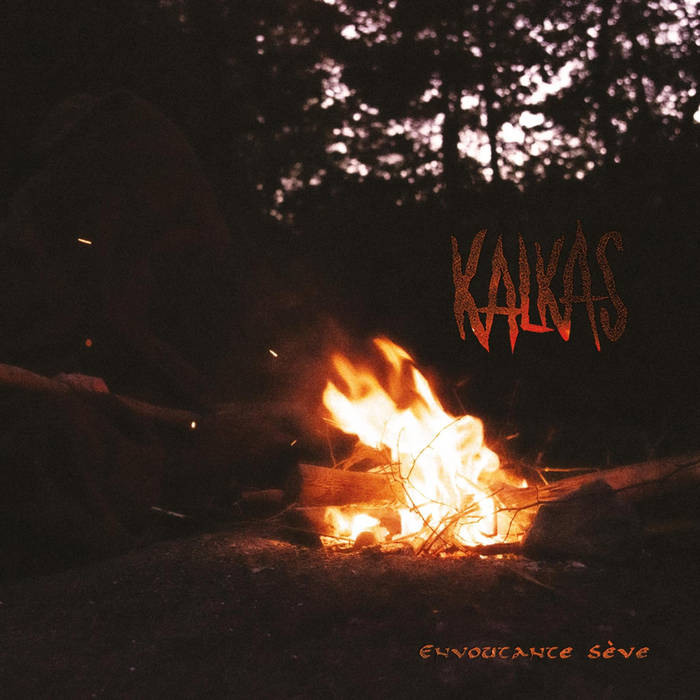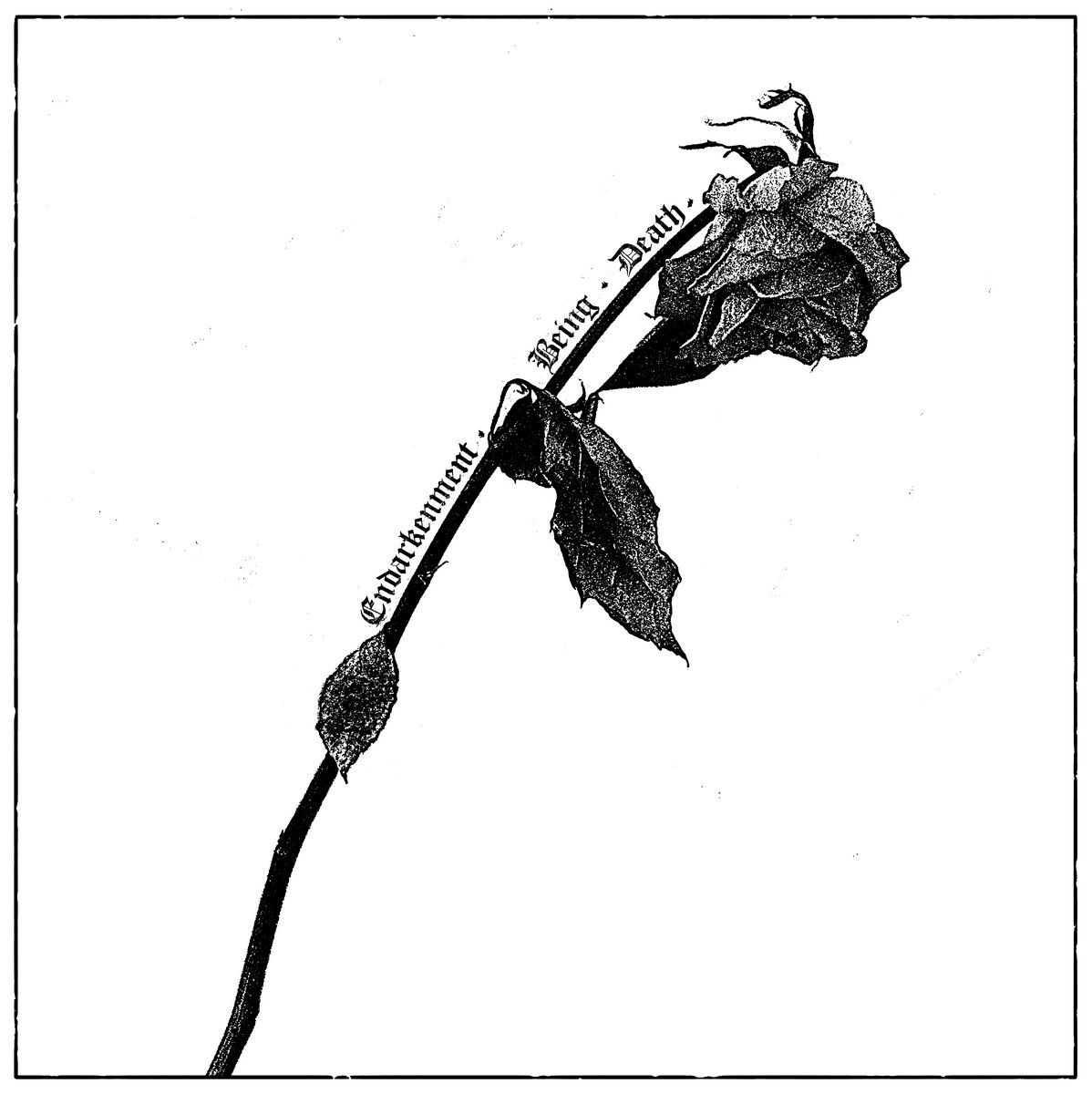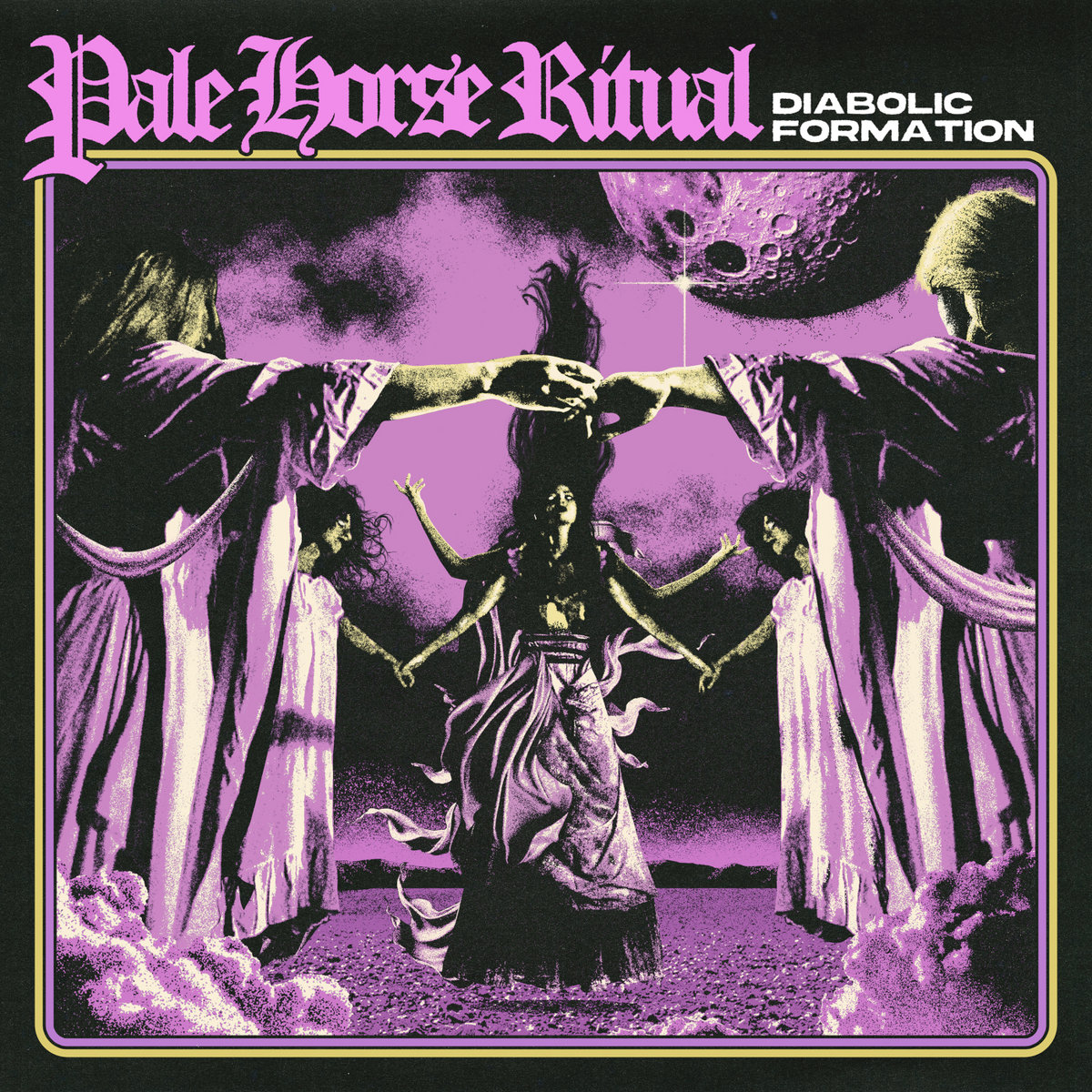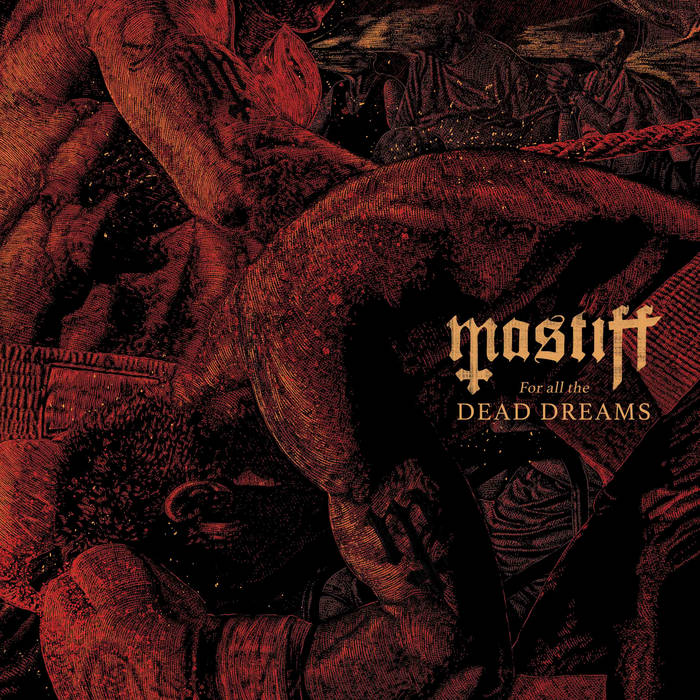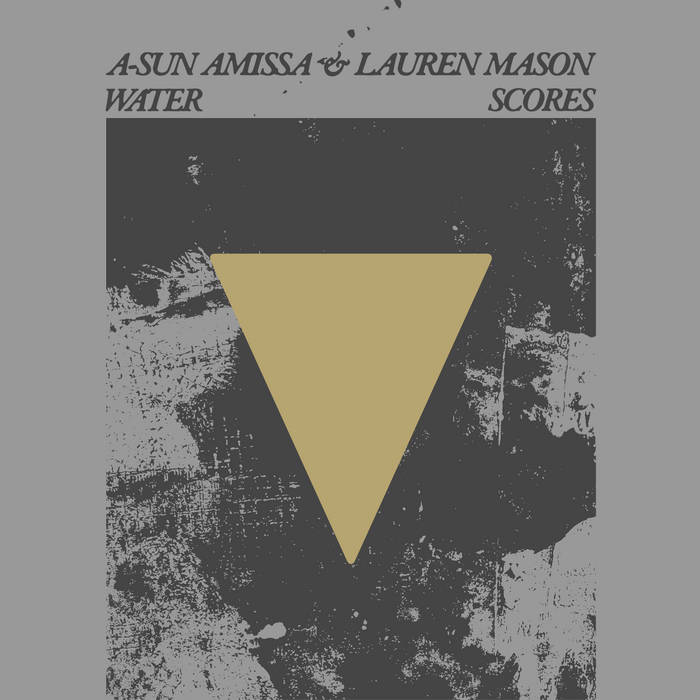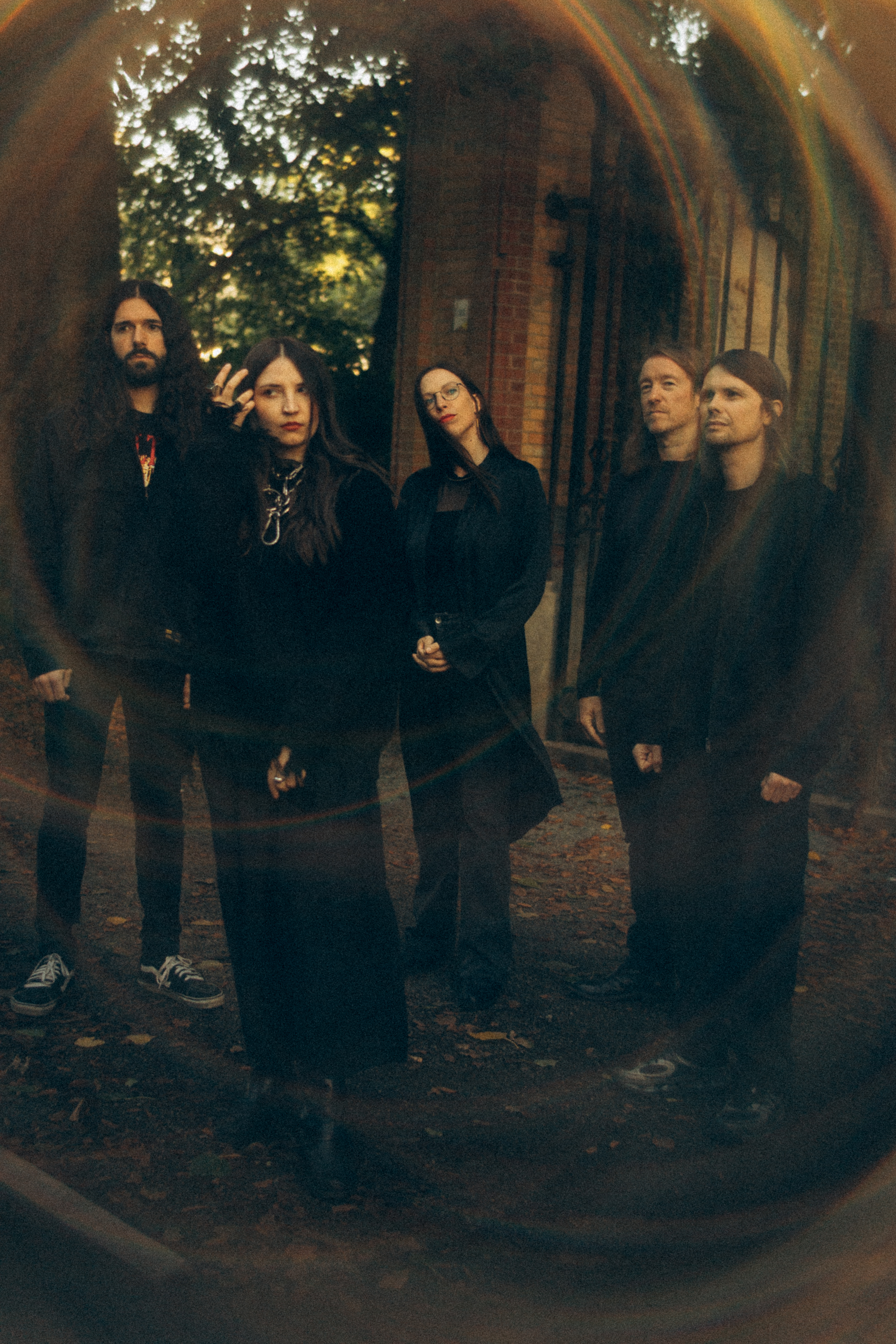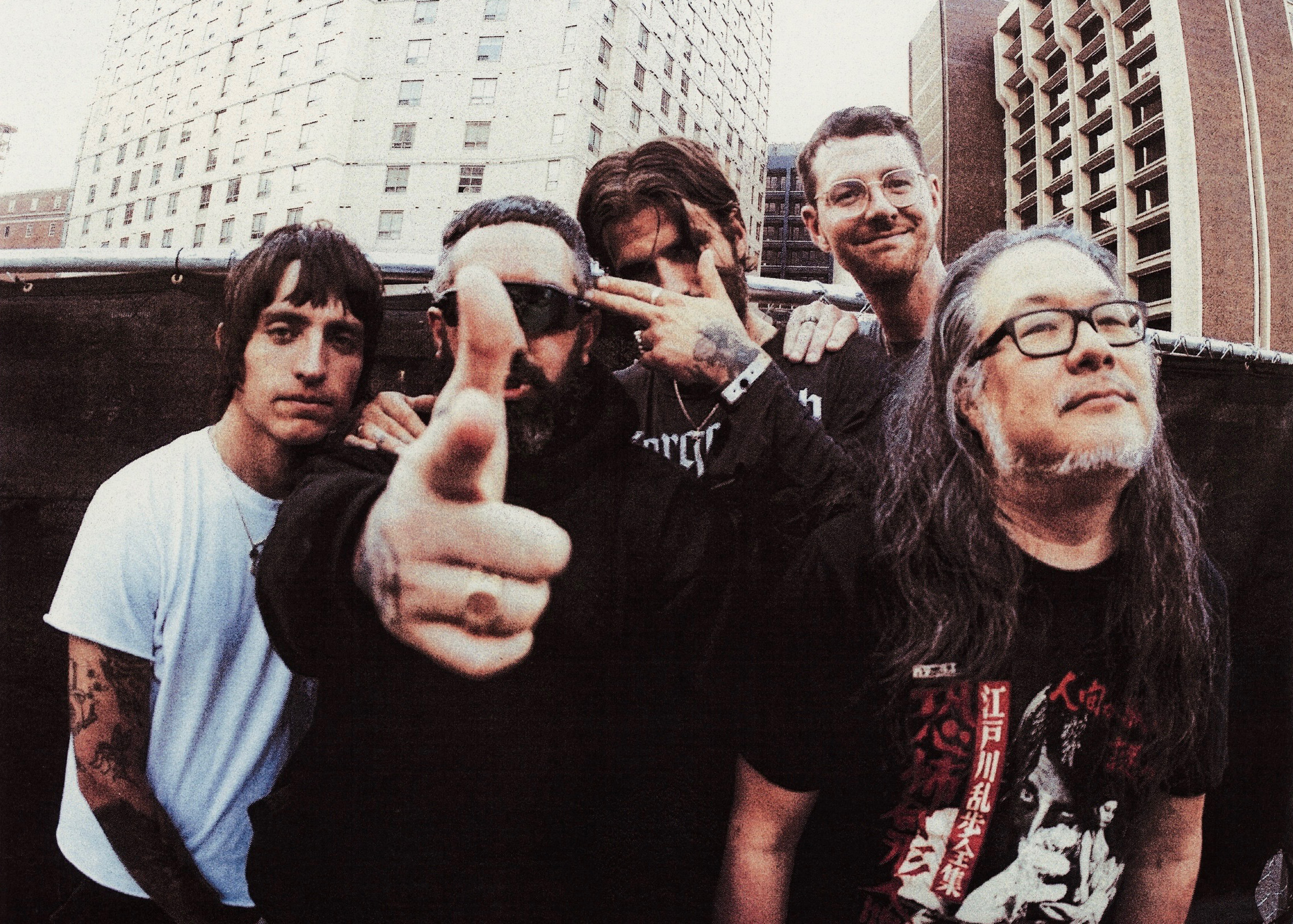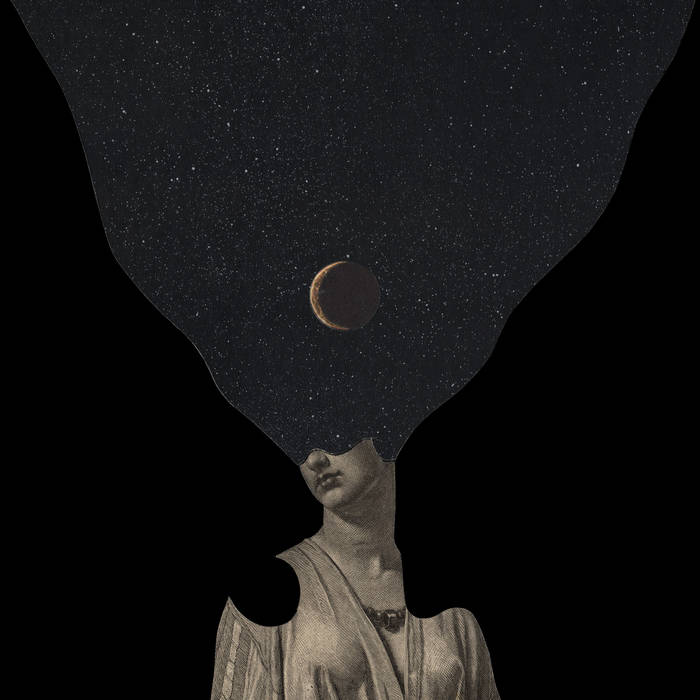Formed in Berlin in 2018 with members from Italy, Belgium, USA and Brazil, Aptera is a showcase of what synergy brings when accomplished musicians unite. Through this album the band discharge anger, compassion, despair, remorse and sorrow. The record is released by a firebrand of musicians wearing their hearts on their sleeves. It is quite hard to believe that this magnificent album is their first full-length. It is what heavy doom-induced metal should be: Engaging riffs reinforced by a diverse rhythm section, robust vocals and at the same time highlighting many ideas and influences from ancient Greek, Roman, Celtic and Norse myths and legends, but also current events, loss, resilience just to name a few.
The album opens with ”Voice of Thunder” and yanks you towards it with heavy riffs, powerful drumming, deep bass grooves and vocals that range from raw anger to clean shouts. Two band members share the dynamic vocal duties. There are two guitars shifting between solos, riffing and often playing the riffs and solo on each side of the bass. The solid bass more than once leads the music forward holding the melody, grooving on and pulling the heaviness forward. At the three minutes mark the soundscapes change, like Black Sabbath did it on ”Symptom of the Universe”, charging forward with subtle and effective changes in the tonality. The guitars lifting the heaviness with solos and riffs, the drumming is impressive, diverse and fast as the strong vocals return.
On the second song ”Selkies” the band dips into the Celtic and Norse mythology of the female shapeshifting sea-creatures and reflecting society’s demands for conformity when the commanding vocals sing: “Why should they give up their wild side to feel complete?/The most powerful voice will not be heard!” On the surface this is a song characterized by heavy repetitive chugging, but in the hands of these musicians the dynamics come from how the instruments share the sonics. The massive and yet variable drumming, hitting cymbals in between, the bass grooving at the bottom and leading the proceedings, guitars suddenly bursting in and out with solos with wah-wah mode while also holding the riffs steady. It is stunningly well done.
And there are six more songs in this vein, of one them is an instrumental, the fifth ”Cosmosis” where the band includes influences from instrumental post-metal. It is a slower paced song where the guitars hold different melodic patterns, techniques and styles to show, as if we did not already know how skilled and confident they are. And the bass and the drums meet the demands of the guitar with the fundament they lay to play on top. I just wanted it to last longer than four minutes, but these musicians just know not to drag it out.
The third song ”Mercury”, can be seen as the drummer´s song. It is quite understandable that this impressive drummer holds teaching classes. A single guitar is lifting up the sonics in the opening while the diverse and steadfast drumming takes a prominent place in the sonics. It hammers away, keeping pace at the same time being all over the place, like Bill Ward always did, following the guitars. The drums hold back nothing driving forward to the next song ”Unbearable Stain” which opens with heavy riffs leading to tremolo-style introducing the vocals and the drums shift to blast beats supporting the fast tremolo guitar. In the heavy metal sonics with widespread riffs the vocalists intertwine with each other, filled with loathing anger and despair as they answer each other and after a while shout in disgust: “Burn!”
Even if ”Days of Void” is fast paced below the angry vocals it might be the heaviest song on the album with lots of engaging tempo shifts for the headbanging crowd. There is some massive riffing built to speed it up sustained by the banging bass and diverse drumming.
The band holds no hostages on the next song named ”When the Police Murder” and its opening lines: “To all legalized murders/Slaves of a corrupt state”. This is a strong melodic heavy metal song. There are riffs and solos that drip with anger, foreboding and sorrow between the angry vocals sometimes close to growling. There is an effective build-up with tremolo guitars to support the emotional message when the menacing vocals sings: “Who will you call when the police murder?”
The last song ”Nephenthes” (second time the editor has ever heard that word outside of Poe’s Raven) holds so many connotations in the lyrics beyond the astoundingly heavy music that it is quite daunting. One could probably do a master degree and still not manage to grasp the song´s multi-faceted topics. It includes Freud´s motto for radical change that is on the title page of his groundbreaking book The Interpretation of Dreams, then there is the recital of an excerpt from the 200 years old poem Phoenix by George Darley over the heavy riffs that open the song and there is the title of the song alluding both to Homer´s Odyssey, and a drug that quells all sorrows with forgetfulness. The title literally means “without grief” and mixed in this there is the Greek river Acheronta, one of the five mythological rivers in the Greek underworld. And the title itself is also the name of a carnivore flower. Phew.
It is quite a feat to incorporate all this and still come out with a vibrant heavy metal doom song that works fine without thinking about all this. A couple of times they drench the sonics with fast paced Black Metal. This song also gives space for the full range of the vocalists that soar from the highest notes to the lowest snarling vocals. The heavy slowness of the song in some parts is reminiscent of the heavy end of Sabbath´s ”Under the Sun” although Aptera picks up pace and races forwards with high pitched wah-wah solo above the hard chugging. The ever-present bass and the diverse drumming drive the shapeshifting track towards a howl that marks a change to fast pace with vocals in duo before it suddenly grinds to a halt.
I think Tony Iommi and his likes must look with great pleasure at what happens in the wake of the music they developed when bands like Aptera take up the baton to keep the genre vibrant. And as Konvent showed us earlier this year and Mortals, High Pristess and many other have done before, gender does not matter when making metal relatet music. The four women of Aptera have showed us that once again with this album to devour, discuss, interpret and never get tired of.

